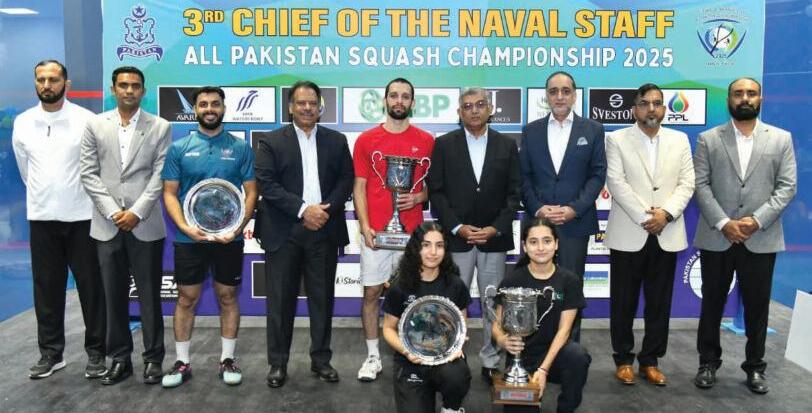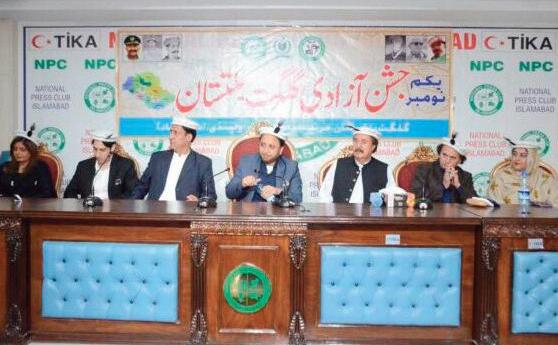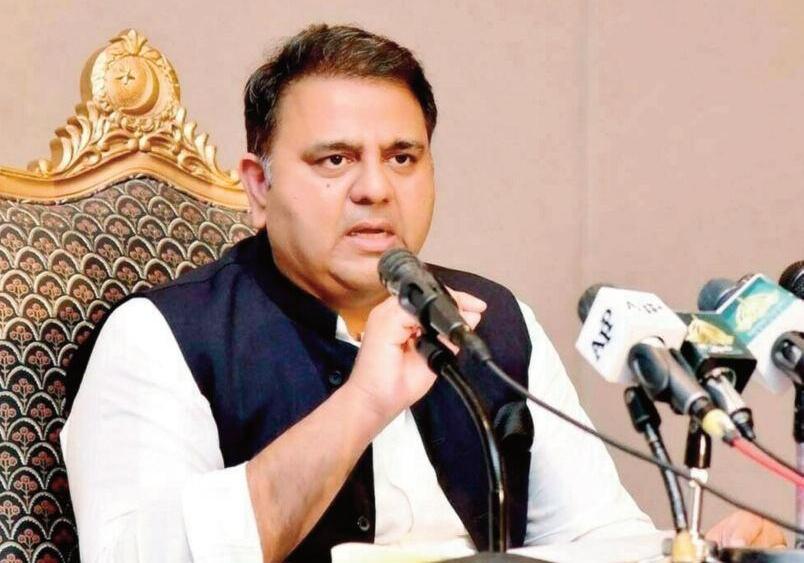
AFTER ISTANBUL TALKS, K ABUL OBLIGED TO ACT AGAINST TERROR FROM ITS SOIL: TARAR
g INFORMATION MINISTER SAYS TALKS IN ISTANBUL YIELD CEA SEFIRE, JOINT VERIFICATION FRAMEWORK
g SAYS NOW AFGHAN TALIBAN WILL HAVE TO ACT, IF THEY DO NOT, THEY WILL FACE CONSEQUENCES
g JOINT MONITORING AND VERIFICATION MECHANISM TO REVIEW EVIDENCE, PENALIZE CEASEFIRE VIOLATORS

groups allegedly supported by India When asked whether Pakistan would respond militarily to future attacks once the mechanism is in place Tarar said:


Pakistan, Romania explore deeper trade and investment par
bassador Dr Dan Stoenescu met with Karachi Chamber of Commerce and Industry (KCCI) President Muhammad Rehan Hanif to discuss expanding economic cooperation During a luncheon meeting at the KCCI office both sides agreed to enhance business-to-business engagement and explore new areas for collaboration The discussions focused on identifying potential sectors for joint ventures simplifying trade procedures and promoting exhibitions to showcase products and services from both countries Ambassador Stoenescu, accompanied by Deputy Head of Mission Eduard Preda, Visa Consul Christian Coroma and Consul General Adrian underscored Romania’s interest in de-
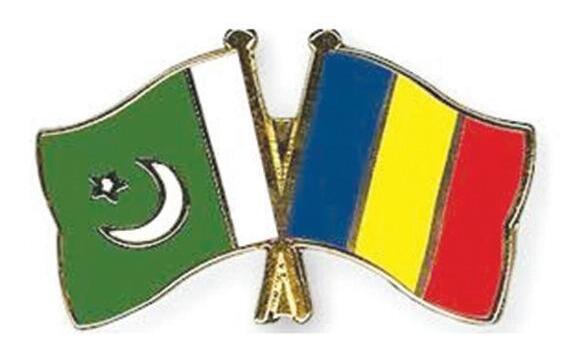
veloping a stronger trade and economic relationship with Pakistan through active commercial diplomacy Representatives of the Pakistan Romania Business Council (PRBC) also attended including Chairman Sohail Shamim Firpo and Advisor and Chief Operating Officer Atif Farooqi Former KCCI President and Vice Chairman of the Businessmen Group (Urdu Group), Shamim Ahmed Firpo, noted that the growing interaction between business communities of both countries marks a positive step toward realizing untapped trade potential He emphasized that sustained dialogue between chambers and private
sector stakeholders would pave the way for durable industrial and commercial linkages Consistent institutional engagement will help develop long-term partnerships and open new avenues of cooperation ” he said Participants agreed that expanding economic diplomacy and direct enterprise-to-enterprise collaboration could substantially enhance trade volume Both sides also expressed interest in encouraging technology transfer, manufacturing partnerships and cooperation in energy and services sectors
The meeting concluded with an understanding to maintain regular contact between the Karachi Chamber of Commerce, the Romanian Embassy, and the Pakistan Romania Business Council to follow up on proposed initiatives and strengthen future engagements Through continuous interaction and shared business initiatives Pakistan and Romania aim to build a robust economic partnership that drives growth and investment in both countries
Pakistan, Algeria reaffirm friendship and economic par tnership on 71st national day celebration
members of the UN Security Council He noted that both countries share “firm commitments to multilateralism and the just causes of oppressed nations especially Palestine and Western Sahara
to
on
anniversary of Algeria’s
the Glorious Revolution of November
ceremony attended by diplomats parliamentarians senior officials and business leaders, celebrated the enduring bonds between Pakistan and Algeria
Assistant to the Prime Minister on Industries and Production, Haroon Akhtar Khan was the chief guest at the event where
ceremonial
was cut to commemorate the occasion In his address Ambassador of Algeria Dr Brahim Romani paid tribute to Pakistan s historic support for Algeria s independence movement, recalling Islamabad’s role during the 1955 Bandung Conference and later at the United Nations We recall with pride and gratitude Pakistan s unwavering support during our revolution and after independence in 1962, he said Dr Romani emphasized that the friendship between both nations continues to thrive through close coordination in regional and international forums including their tenure as non-permanent
The ambassador also spotlighted Algeria s growing global stature under President Abdelmadjid Tebboune’s leadership, describing it as the largest country in Africa and the Arab world and a strategic bridge between Africa Europe and Asia He said Algeria s economy valued at $270 billion in 2024, is projected to reach $400 billion by 2027, driven by rapid industrialization and investment reforms Highlighting Algeria’s position as a major energy and industrial hub Dr Romani noted that the country produces 50 billion cubic meters of gas annually and hosts more than 17,000 new investment projects under its reformed investment law He added that Algeria is leading Africa’s start-up ecosystem with over 10 000 active companies
Referring to the success of the Intra-African Trade Fair hosted by Algeria in September with participation from 132 countries and trade contracts worth $48 3 billion the envoy said it reflected Algeria’s emerging role as a regional business hub
Inviting Pakistani investors to explore Algeria’s expanding markets in energy mining agriculture and manufacturing Dr Romani said both nations could build new economic bridges within Pakistan s Engage Africa policy framework Algeria stands ready to strengthen partnerships with Pakistan and open new avenues of cooperation across public and private sectors ” he added In his remarks Haroon Akhtar Khan reaffirmed that Pakistan offers a reliable and rewarding destination for global investors He said the government is working to establish a strong regulatory and industrial framework that encourages growth safeguards partnerships and fosters innovation Through mutual cooperation Pakistan and Algeria can move forward together in industry, innovation, and prosperity,” Khan said, extending heartfelt congratulations to the Algerian people on their National Day “May the bonds between Pakistan and Algeria grow even stronger guided by shared values and a common vision for a better future
The reception concluded in a festive atmosphere, celebrating the spirit of friendship, mutual respect, and partnership between the two nations

“If the situation is serious and Pakistan’s right to respond is valid under international law and the UN Charter then it depends on the circumstances Once the mechanism is established and joint verification takes place, the violator will face punishment He said the Afghan Taliban would no longer have “excuses” as the new mechanism involves third-party oversight, making them accountable for cross-border actions Responding to reports that Afghanistan had offered to hand over terror suspects Tarar said Pakistan had rejected the proposal clarifying that Islamabad had long demanded the arrest and control of militants threatening its security The Afghan side s recent claims distort facts,” he said “We even proposed a handover through the border post but they continue issuing statements that complicate matters unnecessarily Calling the Afghan Taliban government a fractured regime the minister said it lacked full control across Afghanistan There are factions and not every group is under central command,” he remarked, adding that Pakistan’s civil and military leadership remains united in its approach to dealing with terrorism and propaganda Border tensions and renewed dialogue Pakistan-Afghanistan ties have frayed in recent weeks amid border skirmishes allegations and counteraccusations The hostilities began on the night of October 11, when an attack was launched on Pakistan from Afghan territory shortly after Kabul accused Islamabad of carrying out airstrikes a claim Pakistan neither confirmed nor denied Islamabad has consistently demanded that the Taliban deny safe havens to terrorists while Kabul maintains that no group operates from its soil Pakistan, meanwhile, continues counterterrorism operations nationwide, suffering multiple casualties in intelligence-based actions
ISLAMABAD s ta f f r e p o r t
The All Parties Hurriyat Conference Azad Jammu and Kashmir (APHC-AJK) chapter has voiced serious concern over the continued imprisonment and mistreatment of Kashmiri Hurriyat leaders and activists held in Indian jails for decades describing their condition as a violation of international humanitarian standards and human rights conventions According to Kashmir Media Service, APHC-AJK Convener Ghulam Muhammad Safi said the only crime of these leaders is their peaceful demand for the inter-
ISLAMABAD
s ta f f r e p o r t




nationally recognized right to selfdetermination guaranteed by the United Nations He recalled that it was India itself that took the Kashmir issue to the UN 77 years ago promising the international community t h a t t h e p e o p l
n d Kashmir would decide their political future through a free and impartial plebiscite Safi also reminded that India’s first prime minister Jawaharlal Nehru had publicly stated in Srinagar that Indian troops would withdraw once peace was restored and that Kashmiris would be allowed to determine their destiny
The APHC-AJK Convener said
China and Pakistan have moved to expand industrial cooperation under the Action Plan to Foster an Even Closer China–Pakistan Community with a Shared Future in the New Era (2025–2029), with both sides reaffirming their commitment to deepen manufacturing and investment partnerships under the China–Pakistan Economic Corridor (CPEC)
India has reneged on those commitments and continues to punish those who remind it of those broken promises He noted that most detained Hurriyat leaders are suffering from chronic illnesses and are being denied medical treatment in breach of the UN Human Rights Charter and the Nelson Mandela Rules for the treatment of prisoners Safi urged the United Nations, European Union and Organization of Islamic Cooperation (OIC) along with global human rights bodies to take immediate action for the release of all Kashmiri political prisoners and to pressure India to fulfill its long-standing commitments on the Kashmir dispute
A 15-member Chinese delegation, led by the Organising Committee of the China–Pakistan Safety Production Equipment Procurement Demand Matching Conference visited the Board of Investment’s Project Management Unit for Special Economic Zones (SEZs)
Naeem said adding that JI’s Bano Qabil programme was helping equip the youth with technical and professional skills

The Power Division plan for higher buyback may drive solar power consumers to get storage



WTE A K economic institutional quality has meant that the government has not been able to provide rules of the game’ or legislation that on one hand allows a governance, and incentive structure for the organizations firms state-owned enterprises overall economic agents and markets to function in a way that pushes the economy towards an appropriate level of productive and allocative efficiencies T
ernment, and the State Bank of Pakistan has virtually continued to operate particularly over the last four decades or so has diminished an otherwise very important role of government to mostly
the private sector
At the same time, the rise of oligarchic power at the back of perpetuation of extractive politicoeconomic
opinion on public policy
This has led to spiraling down of political voice over the years and lack of accountability of public representatives the public officials they appoint the lack of public goods they provide– including making efforts to increase resilience against existential threats like climate change crisis, and the related Pandemicene phenomenon– and the space and contracts they allow private sector, under the neoliberal banner of loose regulation real sector, and financial markets over-board privatization and large-scale outsourcing of otherwise important role of public sector for example in the aspects of education health and strategic SOEs This compromised political, and economic
landscape at the back of short-term profit-oriented market signals has resulted in an endless power struggle in terms of centre-staging of power politics– rather than benevolence, and national interest– increased income and wealth inequality, and neoliberal-influenced policy that rather than focusing on improving economic institutional quality, especially in terms of a significant move made towards reaching much-needed much-greater improvement on the aggregate supply side continues to allow overboard practice of austerity policies that has continued to push the country away from sustainable macroeconomic, and economic growth consequences, and much-required meaningful built-up of resilience in particular in the fields of economy environment and epidemiology
One important consequence has been creation of an affordability crisis may that be in terms of a huge gulf in the majority in both rural and urban economies of falling real incomes/wages, on one hand, and on the other, has resulted in increase in transaction costs that add to pressures of otherwise falling real incomes/wages over many years– hence a rise in poverty also– in terms of making ends meet At the same time inflation continues to make a heavy comeback time and again with mostly short-term gaps; for instance, CPI inflation crossed 30 percent in the wake of the Covid-19 pandemic, and stayed high for many months, mainly because of austerity-based temporary macroeconomic stabilization and that too at the back of deep economic growth and employment sacrifice Moreover the affordability crisis is more than what is captured by the limited basket on which the Consumer Price Index is based; and this is on top of lack of quality or value of the things from edu-
Instead, such politics has used popular unrest to wrongly take focus away from neoliberalism– which feeds this politics as a safeguard by the ver y moneyed/vested interest– and on creating xenophobia, and politics of hate , in turn, falsely accusing the minorities, or immigrants as reasons behind economic crisis of affordability, and overall political unrest
The rise and eventual end of Algorithms
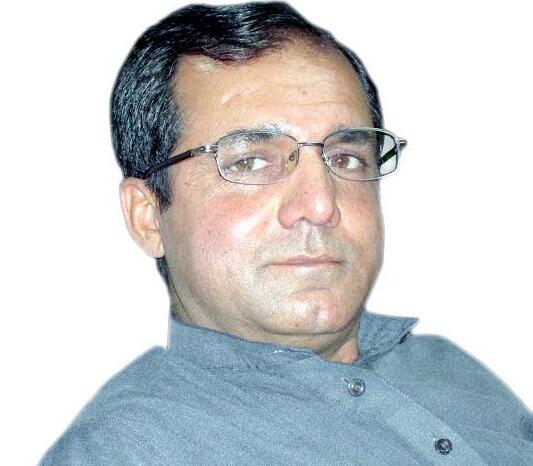

IThey are the nervous system of computation, the abstract logic through which humanity seeks to impose order on chaos Yet, as we stand at the zenith of algorithmic dominance, an unexpected realization is taking form: the very concept of the algorithm as a fixed human-authored set of rules may be approaching its end The success of algorithms is indisputable They are the invisible conductors of precision in a world overloaded with data From predicting weather and optimizing traffic to diagnosing diseases and trading stocks algorithms have made possible a civilization guided by logic and efficiency For developing nations like Pakistan the impact is transformative Predictive analytics can optimize crop cycles, machine learning can extend healthcare to remote areas, and data-driven governance can bring transparency to taxation and welfare The algorithm represents humankind’s finest tool for converting information into understanding But the tool is showing cracks in its logic
The problem lies not in performance but in structure Every algorithm, no matter how advanced, is bound by the limits of its own instruction set Its intelligence is derivative rooted in the data it consumes and the objectives it is told to pursue The human designer defines its boundaries loss functions and learning parameters What appears as machine creativity is still computation within confinement This rigidity is now colliding with the unpredictability of the world it seeks to model Global systems climate, economics, cognition are not static but dynamic nonlinear and self-adaptive No finite sequence of coded rules can fully capture an environment that continuously redefines itself
Three scientific frontiers are now converging to transcend these limits and, in doing so, to gradually bring about the end of the
puting which abandons binary logic in favor of probability A quantum processor explores countless potential states simultaneously through superposition and entanglement It does not execute instructions one by one; it surveys a landscape of possibilities in parallel When quantum architectures mature whether through IBM s Quantum Advantage program Google s Sycamore project or China s Zuchongzhi they will render stepby-step algorithmic logic archaic, just as transistors once displaced the abacus The second is neuromorphic engineering, where scientists design chips that mimic the human brain Instead of executing fixed instructions these systems reconfigure themselves through experience adjusting internal connections as neurons do through synapses They do not simply run programmes; they become the programme This shift replaces rigid computation with plastic computation an intelligence that rewires itself as it learns The third is generative and evolutionary artificial intelligence Large-scale models such as OpenAI s GPT-5 DeepMind s Genesis and Anthropic s Claude systems already engage in reasoning that imitates intuition more than logic But the most profound step is occurring beneath the surface: the development of metalearning systems capable of autonomously rewriting their own learning mechanisms These self-referential architectures will erase the distinction between code and cognition The algorithm will no longer be a fixed script; it will be an evolving organism, adapting its own rules in real time The end of the algorithm will not be an event but a transition It will unfold gradually as computation moves from determinism to adaptivity The next two decades will likely see hybrid systems that combine classical logic with adaptive learning Beyond that, machines will evolve their own architectures, optimizing themselves in ways human designers neither foresee nor fully comprehend Eventually computation will become inherently dynamic quantum neuromorphic generative and the very notion of programming a sequence of steps will vanish Intelligence will cease to be coded;
it will emerge Such a transformation will have immense implications The foundations of accountability ethics, and control will need rethinking If an intelligent system rewrites its own reasoning, can we still claim to govern it? If its understanding is emergent rather than explicit how do we explain its choices? This is not merely a technological concern but a philosophical one The enlightenment dream that reason could be formalized into perfect logic is giving way to the recognition that true intelligence may be inherently non-algorithmic a living synthesis of logic, intuition, and evolution For Pakistan and for every nation striving toward digital sovereignty this future demands a new kind of thinker It will not be enough to train coders who can write programmes The coming era requires cognitive architects who can design, interpret, and ethically supervise adaptive intelligence Universities and policymakers must see technology not as a discipline of machines but as a dialogue between computation and conscience Nations that integrate computer science with philosophy neuroscience, and ethics will lead this new frontier; those that do not will become mere consumers of intelligence designed elsewhere
The story of algorithms is ultimately the story of human reason itself our trust in structure prediction and order Their end will not mark the collapse of progress but its evolution
As logic yields to learning and programming gives way to emergence, humanity is not being replaced by machines but invited into partnership with them The goal of intelligence, human or artificial is no longer mere calculation but comprehension the ability to adapt to evolve and to understand meaning rather than just process data
In this post-algorithmic dawn, the distinction between thinker and tool may blur, but our responsibility will remain the same: to ensure that intelligence, in whatever form it takes, continues to serve the higher purpose of human insight and moral progress The algorithm began as an attempt to imitate reason; its end may bring us closer to understanding what reason truly is
The writer can be reached at qudratu@gmail com
Global rice slump
Not a western idea

P a k A r m y f i r e s b a c k a t I n d i a n t h r e a t s
economic and strategic benefits


TH E Sir Creek issue between India and Pakistan represents a distinct yet equally intractable longstanding territorial and maritime dispute, a conflict deeply rooted in the complex legacies of the colonial era competing national interests and sensitive strategic calculations Despite its relatively small geographic size, this 96-kilometer-long, sinuous strip of marshy, tidal water holds substantial geopolitical, economic, and strategic importance for both nations
Located in the environmentally fragile Rann of Kutch region where the Indian state of Gujarat and Pakistan s Sindh province border each other this tidal estuary flows directly into the Arabian Sea and its delimitation directly dictates the precise trajectory of the maritime boundary between the two countries
The stakes involved are immense encompassing not only the immediate land boundary but also control over a substantial resource-rich portion of the adjacent sea which directly impacts the crucial determination of their respective Exclusive Economic Zones (EEZs), the potential for untapped offshore energy resources and vital fishing areas that are essential for sustaining the livelihoods of thousands of local inhabitants on both sides
The dispute s origins trace back to the early 20th century, specifically to a 1914 agreement signed between the then-Maharaja of the princely state of Kutch (which later became part of India) and the government of Sindh (which was then part of the Bombay Presidency) to define their respective administrative boundaries The core of the current complex disagreement stems from the opposing and mutually exclusive interpretations of this 1914 agreement and the accompanying map
Pakistan maintains that the international boundary runs along the eastern bank of the Sir Creek thereby placing the entirety of the creek s waters within Pakistani sovereign ter-
ritory This claim heavily relies on a textual and cartographic reading of the original 1914 map Conversely India disputes the legal binding nature of this map arguing that it was not formally signed by all parties India instead vigorously advocates for the internationally recognized and accepted Thalweg principle, which postulates that the boundary in a navigable water body should be established along the deepest navigable channel
By applying this principle India asserts the boundary should run precisely through the mid-channel of the creek thereby granting shared and equal rights to both nations
The issue resurfaced dramatically after lying largely dormant following the 1947 Partition gaining significant prominence during the 1965 Rann of Kutch skirmishes
While a subsequent internationally mediated tribunal led by the United Kingdom successfully resolved much of the broader land border conflict, the precise delineation of the Sir Creek region was left ambiguous and frustratingly unresolved
The contemporary significance of the Creek is less about the marshy land itself and more fundamentally about the maritime boundary that must logically extend from it into the vast Arabian Sea Under the United Nations Convention on the Law of the Sea (UNCLOS), coastal nations are sovereignly entitled to a 200-nautical-mile Exclusive Economic Zone within which they possess exclusive rights to all marine resources fishing and critical oil and gas exploration
Since the precise starting point of this EEZ is unequivocally determined by the location of the land boundary terminus, the total maritime territory each nation is entitled to could vary drastically potentially by thousands of square kilometers based entirely on which boundary interpretation is ultimately accepted Therefore the Sir Creek dispute is fundamentally not merely about a narrow, marshy water body but about sovereign control over thousands of square kilometers of critically important maritime territory and its associated significant
The
The economic stakes are indeed considerable with numerous geological surveys and expert assessments suggesting the high potential for vast untapped deposits of oil and natural gas within the seabed Control over these vital energy resources would significantly bolster the energy security and long-term economic prosperity of the possessing nation
Moreover the Arabian Sea serves as a critically important fishing ground and local coastal communities on both sides rely heavily on fishing for their sustenance and livelihood The lack of a clear, defined maritime boundary frequently and tragically leads to incidents where local fishermen inadvertently cross into disputed or perceived foreign waters resulting in their frequent arrest detention and confiscation of vessels by the respective coast guards
From a critical strategic and military perspective, the creek’s physical proximity to the highly sensitive international border makes it a critical area for constant surveillance and rigorous security The difficult terrain characterized by shifting mudflats dense mangrove forests and narrow complex channels, is potentially conducive to illegal crossings, large-scale smuggling, and the infiltration of non-state actors Thus, strategic control over this area is seen as vital to the broader national security architectures of both nations and the unresolved nature of the dispute actively contributes to the deep pervasive mistrust that fundamentally characterizes the India-Pakistan relationship
A permanent resolution has remained frustratingly elusive India and Pakistan have engaged in multiple rounds of talks While joint technical teams have physically surveyed the area extensively and unofficial reports indicated that both sides were close to a pragmatic compromise position largely based on the Thalweg principle during the tenure of Pakistani President Pervez Musharraf these efforts completely stalled due to
political instability in Pakistan and, later, the breakdown of relations following the 2008 Mumbai attacks Since then direct dedicated talks on Sir Creek have largely been frozen Regarding the approach to resolution, Pakistan has publicly expressed its openness to third-party mediation, potentially through reputable international legal forums like the ICJ India, however has firmly insisted that all disputes must be settled exclusively through direct negotiations in the spirit of the 1972 Simla Agreement India remains fundamentally wary of setting any precedent that could lead to the internationalization of other territorial disputes, notably Kashmir Consequently, third-party arbitration remains improbable Recently the issue has been sharply thrust back into the public spotlight and media discourse following a series of aggressive and highly provocative statements from India s senior defense and military leadership India’s Defence Minister Rajnath Singh publicly claimed that Pakistan was actively constructing military infrastructure near Sir Creek and issued a strong unambiguous warning of a decisive response to any misadventure by Pakistan
Speaking at an army base in Gujarat on the occasion of the Hindu festival of Vijayadashami’, Singh accused Pakistan of “malafide” intentions and continuing to raise unnecessary concerns over the Sir Creek sector despite India s purported repeated efforts at dialogue He threatened that any future Pakistani misadventure would be met with a response so severe that it would change both history and geography,” ominously stating that the “road to Karachi also passes through the Creek ” Simultaneously Indian COAS Gen Upendra Dwivedi issued a separate equally strong threat warning that if cross-border terrorism persisted Pakistan would be compelled to rethink its place in the world map entirely He further stated that in any future conflict, India would not exhibit the strategic restraint shown during the past and largely forgotten “Operation Sindoor ” Adding to this escalating military rhetoric IAF chief Air Chief Marshal Amar Preet Singh re-asserted an earlier, controversial claim that four to five Pakistani fighter jets, mostly the advanced F-16s, were allegedly destroyed during the aforementioned “Operation Sindoor” in May claiming a “long operation was carried out at a depth of 300 km inside Pakistan severely damaging military installations This claim echoed an earlier statement about shooting down at least six Pakistani aircraft However, Pakistan s Defence Minister Khawaja Asif has categorically
denied these claims, asserting that not a single Pakistani aircraft was hit Pakistan in fact maintains a counter-claim to have successfully shot down multiple Indian warplanes including a highly advanced Rafale jet Even US President Donald Trump has publicly mentioned the destruction of several Indian aircraft India’s Chief of Defence Staff, Gen Anil Chauhan, has conspicuously avoided confirming the exact number of downed Indian planes stating that the l focus should


DI
Don t worry, I will tell people I don t think the patriarchy is literally a group of super-powerful men meeting to decide how best to s**** women over I don’t think they’re all in league with one another ” Only these days sometimes I do Certainly I no longer consider the representation of women as inferior and exploitable merely a misconception in need of correction the kind of thing one might fix with a few UN Women-style tweets Whether one is considering the co-defendants in the Pelicot trial, the escalating abuses of the Taliban or the global network of men named and unnamed in Virginia Roberts Guiffre’s memoir there is something not just systematic but deliberate shared and unashamed about patriarchy s worst excesses Dehumanisation is not an accident but an ongoing project following multiple scripts Multiple people sat down, for instance, and scripted the following scenario, outlined in Jo Bartosch and Robert Jessel s excellent new book, Pornocracy: A woman stands in a room with several men She is fully clothed [ ] If she manages to leave the room she’ll receive money For each article of clothing she has at the end of the scene she ll also get cash For each sex act the men compel her to perform they ll get paid and she ll lose the same amount from her fee It s a situation designed to accurately depict sexual assault the men are genuinely attacking the woman, who is genuinely attempting to resist them without being legally classified as such Yet, as the authors go on to note (and their book goes on to show) “under the Pornocracy this counts as a relatively vanilla scene Bartosch and Jessel are not ones to fear potential accusations of conspiracy theorising (alongside the fellow sins of promoting stigma and stoking moral panic ) From the outset they make their thesis clear We might not realise it, they write, but we are all subjects of the Pornocracy a system where our minds, relationships and laws are shaped by global-scale sexual exploitation ” You do not have to make
narratives As I suggest in my own book Unkind, the global porn industry has picked up where conduct manuals conservative gender essentialism and religious fundamentalism left off THE DOUBLE STANDARD THAT PROTECTS PORN IS STAGGERING: In many ways, this should not be a complex argument for liberal feminism to grasp It already gets the basics Not everyone has to read the same books or listen to the same sermons or believe in the same gods for everyone to be affected by a dominant belief system which positions women as passive masochistic hollowed out in need of punishment What happens to perceptions
influence As Helen Lewis wrote in 2020’s Difficult Women, “we subject other forms of culture to intense scrutiny – ‘Is Girls racist? Is The League of Gentlemen transphobic? – and leave porn untouched Bartosch and Jessel point out that as zombie feminists have continued to censoriously carp about micro-aggressions and trivialities, the moral revulsion once aimed at men who paid for sex has abated More than that there are feminists” who actively lead the charge to defend the indefensible In her recent book Enemy Feminisms Sophie Lewis takes feminists past and present to task for racism and siding with the oppressor Nonetheless she also finds time to defend porno magazines and movies involving KKK and plantation scenarios on the basis that even here, unexpected pleasures may arise for both porn workers and viewers : To playact rape is not the same as rape, even if and even when the reasons people enjoy playacting it, and watching others playact it, stem from the influence of the real thing on our desires as they are presently constituted real desire to harm and real traumatized repetition compulsion For Lewis porn occupies a magic sphere in which it is not part of but merely a response to and reflection of cultures which enable and facilitate rape Somehow, she someone who views pornophobic feminists as more complicit in harm than pornographers themselves is not considered the one to be indulging in wild imaginings Lewis’s position is reminiscent of that of Judith Butler In her 1999 takedown of Butler Martha Nussbaum notes that Butler s (unoriginal) observation that power structures are eroticized leads her to conclude that we all eroticize the power structures that oppress us, and can thus find sexual pleasure only within their confines : For Butler the act of subversion is so riveting, so sexy, that it is a bad dream to think that the world will actually get better What a bore equality is! No bondage no delight Real, drudgy equality is a boner killer or at least it is to the terminally unimaginative What research actually shows as explored in the second chapter of Pornocracy is that exposure to more extreme material creates sexual dysfunction and misdirects desire

The sacred status of porn no matter how abusive or hateful it is can make combatting its influence feel an insurmountable challenge It can also make other attempts to challenge misogyny feel toothless Seriously, what is the point in raging about the portrayal of women by the tradwife movement submissive passive blank-eyed servile if you’re all in with it the moment it’s repackaged as an edgy femme identity? Why bother complaining about stochastic terrorism if you won t ever draw the well-established link between systemic violence against women and children and the normalising narratives of porn? Yet this dissonance makes books such as Pornocracy matter all the more
Pretending the large-scale dehumanisation and abuse of women and girls is some terrible mix-up while the male orgasm is sacred is less likely to see you treated as an extremist
You are less likely to receive as Bartosch no doubt correctly perceives she will unhinged emails peppered with the same slurs thrown at women in pornography But you are also less likely to ever understand why misogyny is so persistent and deep-rooted or to have the tools some of them suggested at the end of the book with which to combat it “Under pornocracy ” write Bartosch and Jessel with characteristic bluntness collective progress and the concept of human rights risk being overtaken by a single overwhelming demand: the right to be f***** This is not a conspiracy theory It is a choice Pornocracy by Jo Bartosch and Robert Jessel, Polity, £16 15


FO R more than two decades Marwan Barghouti has sat behind Israeli bars a living emblem of a brutal occupation that has denied Palestinians their freedom and dignity His continued imprisonment is not merely unjust; it silences the one leader most capable of uniting the Palestinian people and leading them toward a political solution Polls over many years show he is the most popular Palestinian political figure, trusted across factions and generations even by many who have lost faith in politics Releasing him is not a concession It is a prerequisite for peace When the Second Intifada (uprising) began in 2000, Barghouti was a prominent member of Fatah, the Palestinian political faction that dominates the Palestinian Authority (PA), which governs limited parts of the occupied West Bank He was also an elected parliamentarian He was arrested by Israeli forces on April 15 2002 and in 2004 an Israeli court convicted him and sentenced him to five life terms plus 40 years, accusing him of involvement in attacks that killed Israelis Barghouti denied the charges, refused to recognize the court’s legitimacy and declared himself a political prisoner under occupation Independent observers including the InterParliamentary Union later found that the proceedings failed to meet international fair-trial standards and bore the marks of political persecution Barghouti’s case is inseparable from the larger machinery of occupation: like thousands of other Palestinian prisoners he has endured brutal and degrading treatment including torture solitary confinement and denial of adequate medical care Israeli authorities are obligated under international law to ensure due process, humane treatment, and access to counsel and healthcare obligations they routinely violate Throughout his imprisonment Barghouti has supported a principled stance: he rejects attacks on civilians and defends the right of

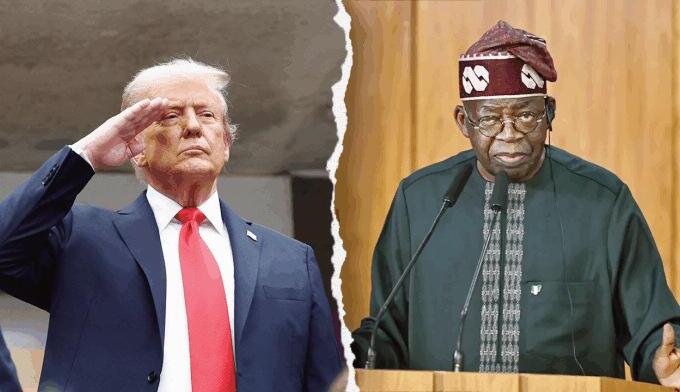
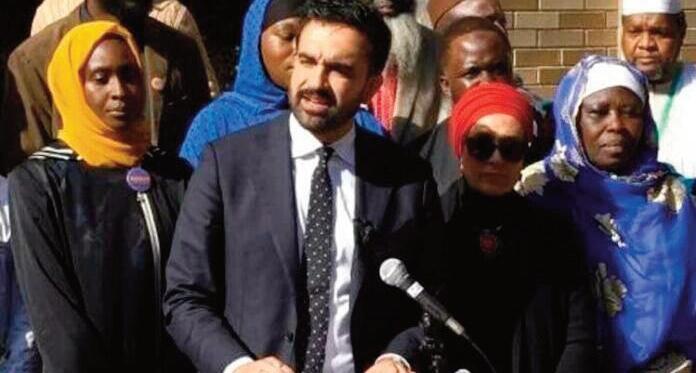


At least 23 dead in Mexico supermarket blast

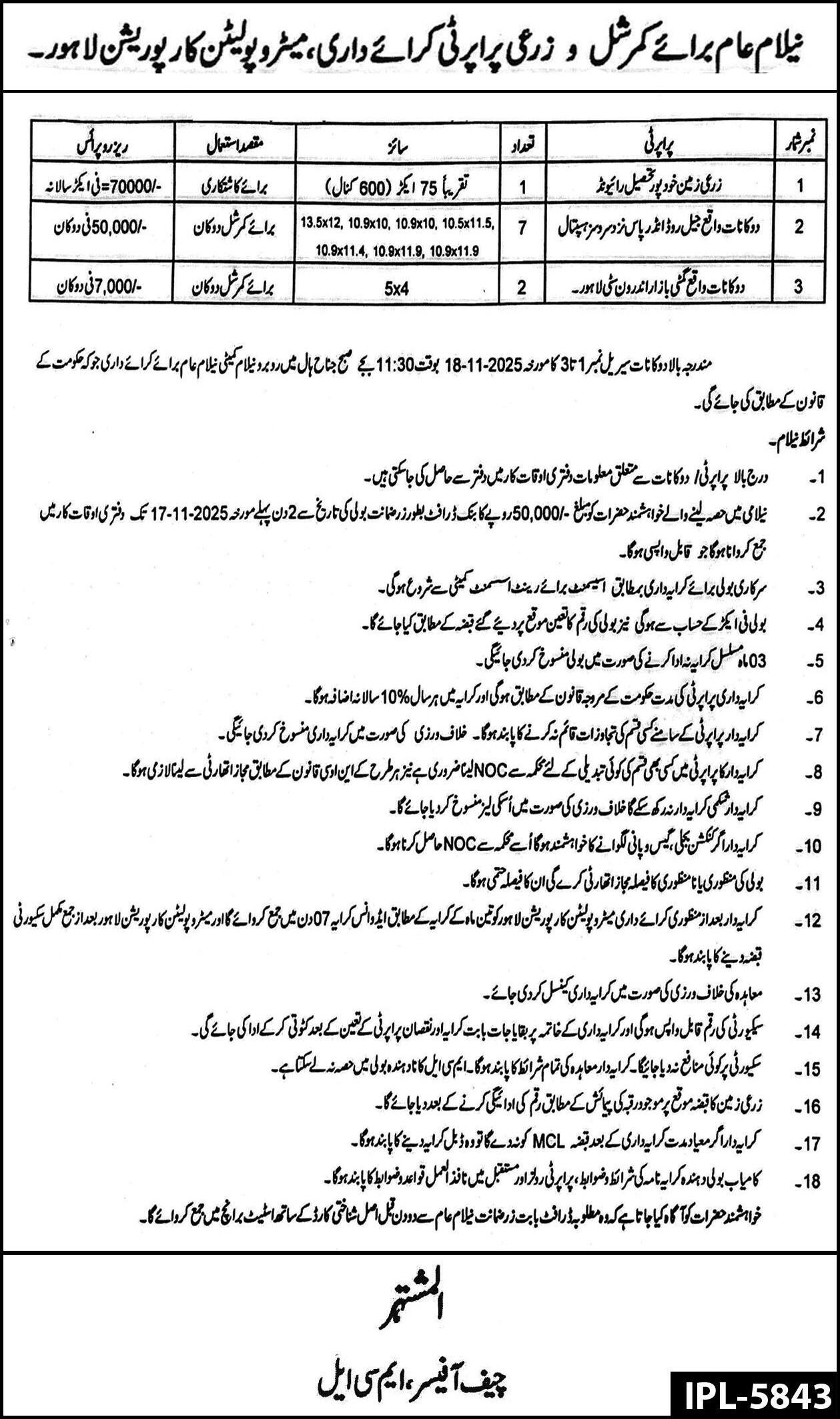

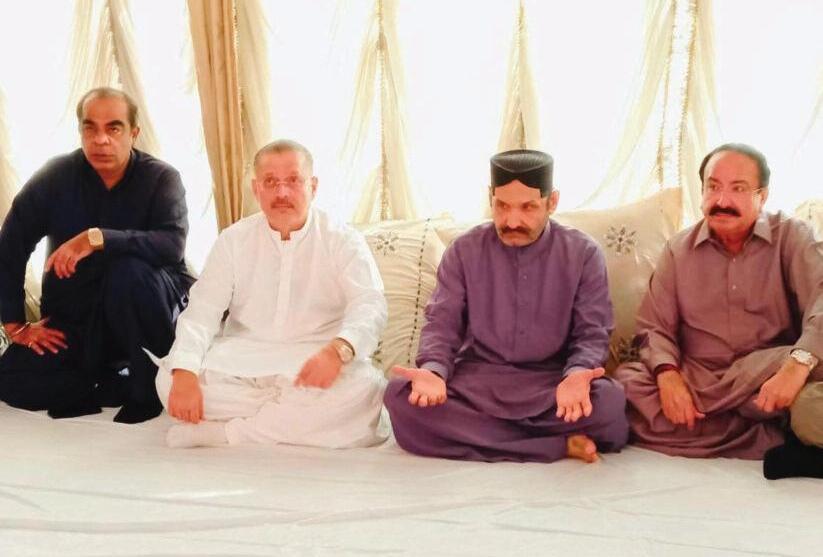
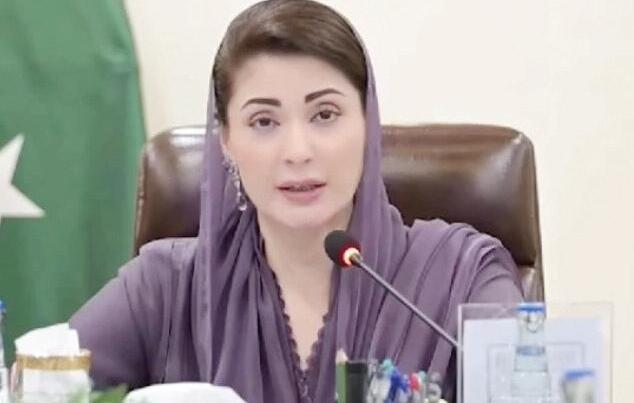
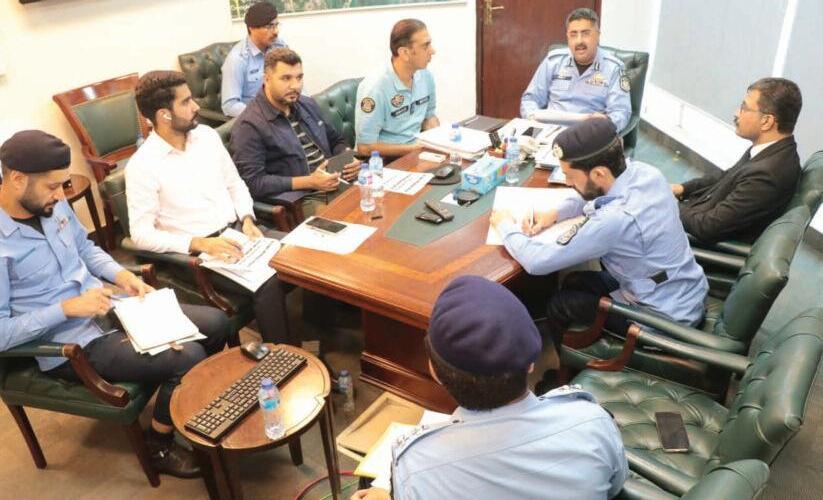
Countr y ’s chili crop


